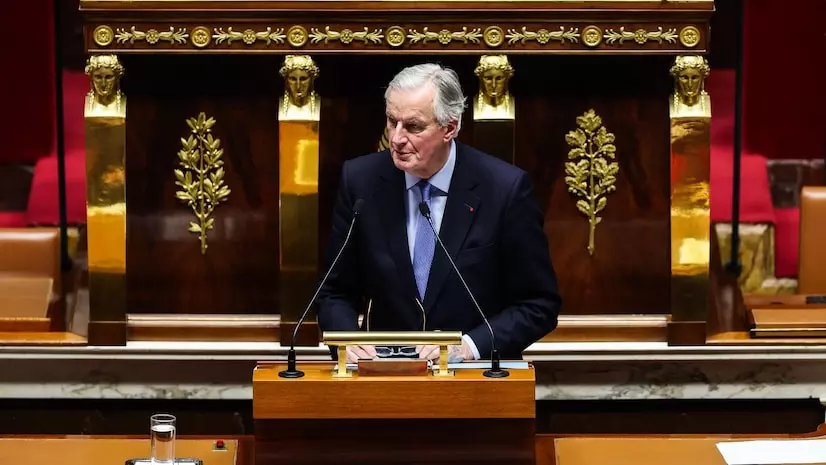
French govt collapses as PM Michel Barnier ousted in no-confidence vote
Barnier and his government ousted by lawmakers over budget disputes; Macron faces challenge of appointing new PM as France deals with economic fallout of crisis

The French government collapsed on December 4 after Prime Minister Michel Barnier lost a no-confidence motion in Parliament.
Far-right and left-wing lawmakers got together to back a historic no-confidence motion against Barnier and his government, which was prompted by budget disputes. This is the first time since 1962 since Georges Pompidou, a PM and his cabinet members have been forced to resign.
Shortest serving PM
A conservative, Barnier became the shortest-serving prime minister in France's modern Republic. He has served for just 91 days having taken up the post on September 5.
The National Assembly had approved the motion by 331 votes. "I can tell you that it will remain an honor for me to have served France and the French with dignity," Barnier said in his final speech before the vote.
President Emmanuel Macron, who will now have to appoint a new prime minister for the second time in a span of few months, will address the French on Thursday evening, his office said, without providing details. Barnier is expected to formally resign by then.
Also read: Macron keeps France's PM in place for stability of country after chaotic polls
Political crisis
This latest development has thrown the European Union's second-biggest economic power deeper into a political crisis without a stable government or a 2025 budget, said news reports.
Also, this is all set to further weaken the European Union already struggling with the collapse of Germany's coalition government, and US President-elect Donald Trump's imminent arrival at the White House.
What led to collapse of Barnier's government?
The no confidence motion stemmed from intense opposition to Barnier's proposed budget.
Fance's lower house of parliament is made up of three major blocs, Macron's centrist allies, the left-wing coalition New Popular Front, and the far-right National Rally. Opposition parties turned unlikely allies as they teamed up to fight Barnier, who they felt was imposing austerity measures and was not addressing citizens' needs.
National Rally called it a toxic budget.
According to reports, the Opposition parties were punishing Barnier for using special constitutional powers to push an unpopular budget, which sought 60 billion euros in savings in an effort to shrink the deficit, through parliament without a final vote.
Also read: France's elections end up with no clear majority. What could happen next?
Macron's challenge
News reports suggested that President Emmanuel Macron had facilitated this crisis by calling a snap election in June that delivered a polarised parliament. Macron, will now have to appoint a new prime minister for the second time after July's legislative elections led to a deeply divided parliament.
His opponents, however, keep voting down one prime minister after the next.
Moreover, no new legislative elections can be held until at least July, creating a potential stalemate for policymakers. The meaningful way to end the protracted political crisis is for him to resign, say his critics. But, Macron is not willing to do this.
On a recent trip to Saudi Arabia, Macron had described discussions about him potentially resigning as "make-believe politics".
"I'm here because I've been elected twice by the French people," Macron said. Further, he also said that people must not be "scared with such things. We have a strong economy".
Economic fallout
Political instability in France can “spook financial markets”, said an international news agency report. The political uncertainty is unnerving investors in French sovereign bonds and stocks, the report added.
Moreover, earlier this week, France's borrowing costs briefly exceeded those of Greece, generally considered far more risky.
Analysts, however said that France is not in the same position because much of its outstanding debt is not due for years, and because its bonds remain in demand due to a shortage of German government bonds.
But from European Union pressure, France also has to work to reduce its colossal debt.
The country's deficit is estimated to reach 6 per cent of gross domestic product this year and analysts say it could rise to 7 per cent next year without any major adjustments.
Moreover, this new political instability could push up French interest rates enhancing the debt even further.

